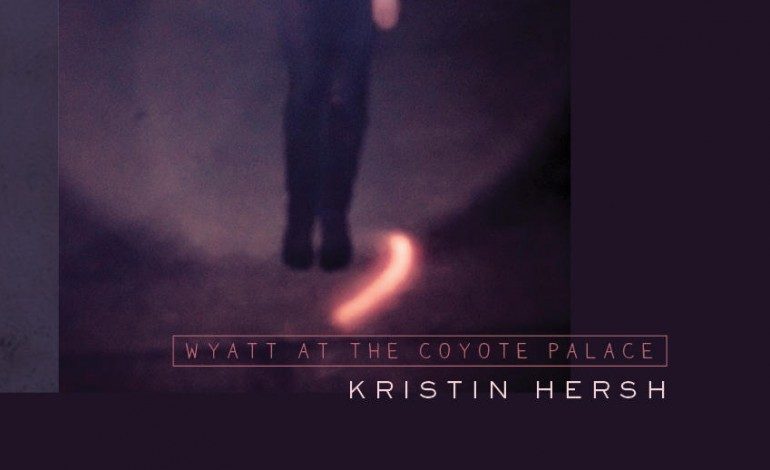

Multiple Personalities with Strong Roots
Singer-songwriter Kristin Hersh’s two-disc Wyatt at the Coyote Palace opens with an extended intro that hardly betrays its name titled “Bright.” However, her stream-of-consciousness lyrical style is rather lost on this track, overshadowed by driving electric guitars, which establish a rather foreboding musical soundscape that devolves into layered textures that might have scored a film about the hippie movement of the ’60s–if, perhaps, the hippies had drank a bit too much whiskey. Vocally, the album’s earlier numbers evoke Alanis Morissette and Tori Amos, making even lyrics such as “there’s no tomorrow” sound sardonically hopeful. Hersh, however, is not one to whom any can be compared, as her distinctive vocal delivery is entirely her own.
The acoustic guitars, subtle distortion, layered monologues and found sounds suggest a common ancestor between Hersh’s sound influences and those of more contemporary alternative folk-rock groups’ collective sound influences (e.g. London Grammar and Fleet Foxes). Her music has a tendency to turn on a dime, abruptly changing styles so that listeners may have to confirm that the track has not changed. This feeling is further facilitated by the album’s flow, which seems to fade in and out, again, like a film score or soundtrack to a dream, even when the divisions between tracks are decidedly pointed and abrupt.
The mildly existential “Secret Codes” showcases Hersh’s unique vocal quality. She seems to be insistent, emphatically convincing the listener with the refrain, “you don’t need my help at all.” This grit builds with the highly percussive “Green Screen,” which bobs heads and taps–or stomps–feet of its own accord, before abrasive vocals and guitars even enter the scene. Hersh continues to indulge her penchant for dimensional layering that makes listeners quickly aware that a comprehensive understanding of the album may require several mindful trips through its tracks. Hersh is ever-careful not to let her listeners grow complacent or to feel one particular emotion for too long. The impressive length of the album as a full work is offset by its short tracks, full of many twists, turns and stylistic variances. Hersh’s tendency to begin tracks in a particular headspace and abruptly change course, often to fall into a similar acoustic sound as that of previous tracks, may frustrate some listeners; but it certainly creates an interesting contour on the album, which upon first listen may appear to contain several artfully disjointed interludes.
Raw and steely guitars are paired with wispy yet powerful vocals on “Diving Bell,” ebbing and flowing with such staggered texture that one may believe for a moment that the song has been set to play on multiple platforms from disparate musical points. Hersh tells stories, which she instills with an incredible degree of emotional urgency, even if her lyrics seem to flow straight from her own journal like in “Killing Two Birds” when she sings “could be worse, Miss Hersh, you could be lost…”
Hersh leans on the use of evocative droning instruments, as well as vocals characteristic of many sub-genres of rock and folk. The occasional girlish background vocals have a strange grounding effect on the myriad of styles employed. While she truly refuses to pigeonhole herself, and in fact appears to follow her every stylistic whim, the artful arrangement of this bedlam creates a cohesion that allows her to be at least tenuously classified. “American Copper” is perhaps Wyatt at the Coyote Palace‘s most stylistically linear song, yet by this point on the album the listener has learned not to judge its tracks by only their opening bars. A track may be “Califonia Dreamin’ ” one second and a particularly angsty cousin of “Norwegian Wood” the next. Wemust wait on the edge of our seats to see which direction we are taken.
Overall, the standout feature of this album is its instrumentation, and its satisfying way of leaving listeners feeling like they have encountered a work of intimacy that possesses considerable continuity considering its vast range of feeling and style.
